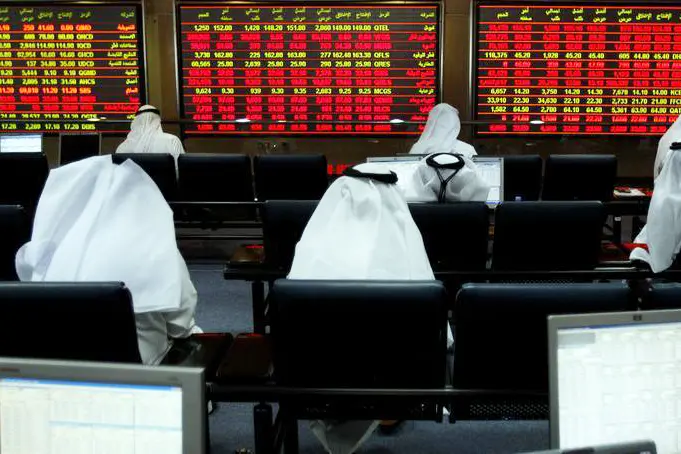PHOTO
Saturday, Feb 13, 2016
Dubai: Amid massive volatility in global markets, multi-asset funds, which were once considered institutional or pension fund-oriented products, are gaining traction among high net worth individuals.
The reasons are many for the newfound popularity. The speed at which fund managers can implement changes in asset allocation is faster compared to traditional funds, along with the ability of the fund to choose from a wide variety of asset classes anywhere in the world. The third reason is the ease with which investors can invest.
And with the US S&P index down more than 9 per cent since the start of the year, investors have been trying to digest the volatility in a world with subdued growth.
“In the current market environment of subdued global growth and limited return expectations across a number of asset classes, the main benefit of multi-asset investing relates to the greater choice and flexibility embedded in the investment process compared to single-asset class funds. Fund returns will depend a lot more on alpha generation as investment opportunities will present themselves in a much more scarce and heterogenous fashion than in the past,” Sonja Laud, Investment Director, Global Multi Asset Group, Baring Asset Management told Gulf News on her Dubai visit from London.
“We have identified growth is scarce and income is even scarer. That means [an] income-seeking investor is facing the worst of both the worlds. If you are a single-asset class fund manager, then you can either manage income or volatility. This is where multi-asset really aims to provide an outcome that investors are looking for,” Laud said.
Brendan Dolan, Regional Director, Middle East and Africa, Old Mutual International, agreed with Laud’s view. “Most investors understand the advantages of multi-asset investing; having some investments that should in theory go up in value when others go down makes pretty obvious sense. The trouble in very volatile markets — as we saw during the global financial crisis — is that different kinds of investments can suddenly all go down together, even if they would ordinarily be expected to perform differently,” Dolan said.
Laud feels that fund managers need to be more granular in their approach to generate alpha returns in these markets. “The return expectations based on the current economic conditions have come down a lot. Every additional risk is no longer producing the additional return that it used to. It’s a big dilemma that we are facing. We feel that multi-asset category would benefit what is going on currently because we can choose. We are aiming for picking up the investments when we feel it is the best opportunity,” Laud said.
Laud likes the European domestic consumption theme. “A lot of asset classes are in neutral now as the growth is scarce. Earlier you bought Europe based on Draghi’s attempts on whatever it takes and we’d [get] pretty decent returns. And we think there has been a big shift in the way investors should look at markets. With Fed finally embarked on a Fed rate hike, you need to be a lot more granular in identifying where the opportunities are. With the growth outlook so subdued, it’s no longer one strategy that would generate alpha returns. It’s more of homogenous risks than heterogeneous opportunities.”
The fund is more than 45 per cent in equities and 12.5 per cent in listed property firms, another 12 per cent in alternatives such as aircraft leasing. infrastructure financing, renewable themes, etc.
However, diversification is also hard to find. “There is no ‘magic bullet’ to solve this challenge as true diversification is hard to find. Exposure to relatively scarce asset types, which perform in a way that is truly different from the major traditional asset classes, like company shares and bonds can help multi-asset funds weather future volatility. Investors who are looking for more stability could consider a multi-asset fund which takes a risk-targeted approach, as this may help ensure the fund remains within predefined ‘volatility bands’,” said Dolan.
By Siddesh Suresh Mayenkar Staff Reporter
Gulf News 2016. All rights reserved.





















